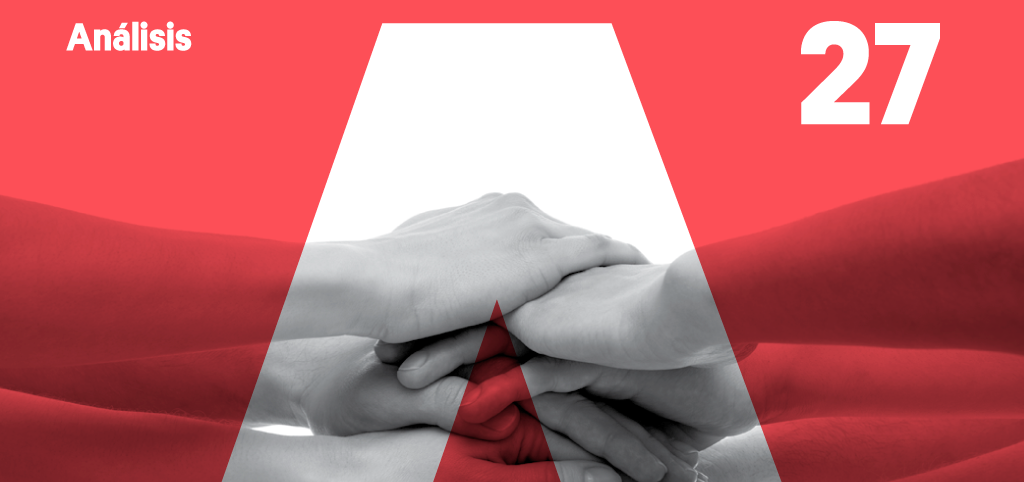"Virtuous Circles in Spanish Cooperation": An Innovative Proposal for Spanish Aid
Report by ISGlobal and Technical University of Madrid (UPM) makes proposals aimed at enhancing the future impact of Spanish Cooperation
11.07.2017
In the coming months, the Spanish Government and Parliament will be reconsidering the country’s cooperation and development policy as they draw up a new Master Plan for Spanish Cooperation and define a national strategy for the implementation of the Sustainable Development Goals (SDGs). In light of this, the Barcelona Institute for Global Health (ISGlobal, an institute supported by the ”la Caixa” Foundation) and the Innovation and Technology for Development Centre at the Technical University of Madrid (ItdUPM) have published a report entitled “Los Círculos Virtuosos de la Cooperación Española” (Virtuous Circles in Spanish Cooperation) aimed at providing inspiration and proposing an innovative approach for Spain’s contribution to global development.
The document elaborates on a new concept: virtuous circles. The term is used to describe development cooperation projects in which an alliance between public and private actors tackles a complex social or environmental problem through interventions based on innovations, thereby obtaining direct benefits for the targeted population and also reinforcing Spain’s strategic interests in key areas, such as production transformation and global influence and presence while at the same time strengthening public-private networks. This new concept is also a good fit with the vision laid down by the SDGs, which identifies scientific, institutional and political creativity as one of the fundamental pillars of the 2030 work agenda.
To illustrate the concept, the authors describe and analyse several examples that have inspired the formulation of the concept of virtuous circle, taken from diverse sectors. In the case of one strategic sector in Spain—renewable energies—they cite the example of a project for the installation of home photovoltaic systems in Mexico led by a private Spanish company in partnership with the Mexican Government. In this example, the project introduces a new technology that provides poor populations access to clean, stable and affordable energy.
They also cite several examples related to the health sector in which the resources of Spanish cooperation have been decisive in the fight against diseases closely related to poverty, such as malaria. In the case of malaria, public bodies, NGOs and private sector actors have joined forces to set up platforms in Mozambique and Equatorial Guinea, countries where malaria is endemic, and have contributed to the development of some of the key tools and strategies used in malaria control today, including artemisinin combination therapies, long-lasting insecticide-treated mosquito nets and the first malaria vaccine, using a model of cooperation based on knowledge exchange.
Carlos Mataix, the Director of itdUPM explains that “innovation in the field of development is characterised by collaboration between diverse actors—civil society, NGOs, private firms and public bodies”. He goes on to explain that “concerted action on the part of the people and institutions that influence the course of science, technology and development cooperation is needed to increase the impact of innovations and ensure that they spread quickly throughout society.”
Based on the lessons learned from these examples, and thinking about the need for a new Master Plan for Spain, the authors make a series of proposals aimed at ensuring that future Spanish cooperation will have greater impact and will, at the same time, promote Spanish interests. Among other recommendations, they call for strong commitment to research and innovation as tool for development aid, the adoption of the SDGs as a working framework for Spanish aid, considering virtuous circles as a strategic model, collaboration between public and private institutions, medium- and long-term evaluation of the impact of all interventions, and choosing triangular funding models involving bilateral, multilateral and private actors.
“In cooperation, the concept of virtuous circles helps us to fulfil a threefold objective: promoting the development of poor countries, reinforcing strategic sectors of our own economy, and using triangular financing mechanisms that alleviate the budgetary burden of the programmes” explains Gonzalo Fanjul, ISGlobal’s Policy Director and one of the authors of the report. In his opinion “the report proves one of the axioms of modern cooperation policies: the right thing can also be the smart thing. Even at a time when budgets are limited, the situation currently affecting Spanish Cooperation, aid is a smart bet. It offers tangible benefits for populations targeted but that is never the whole story.”



